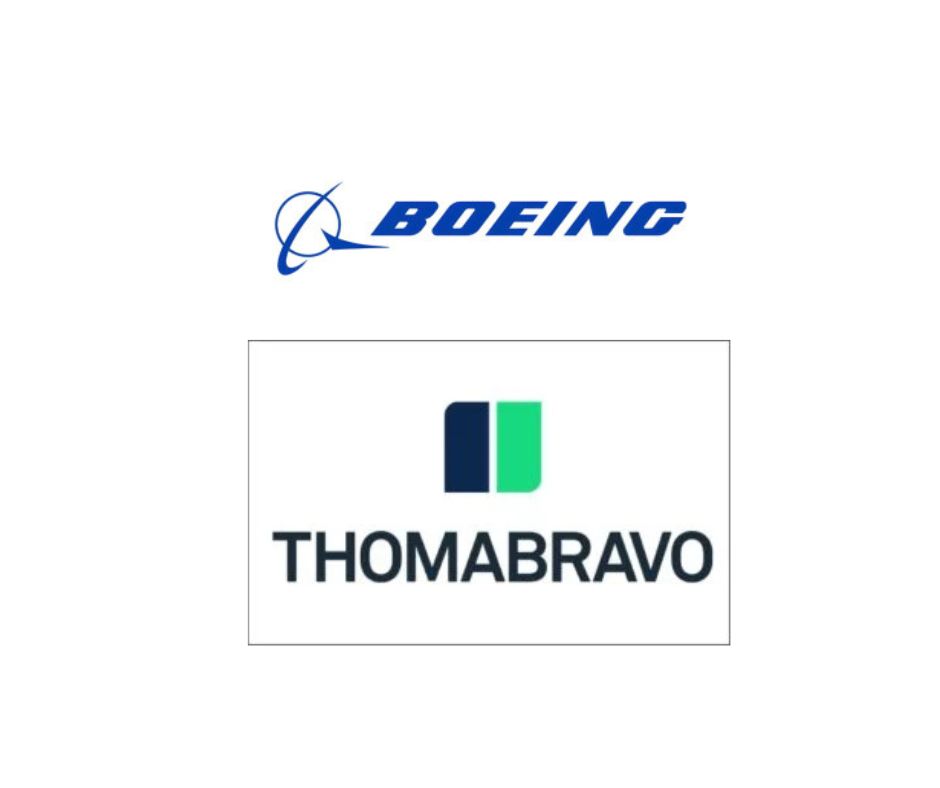In a significant move to streamline its operations and bolster its financial standing, Boeing has entered into a definitive agreement to sell portions of its Digital Aviation Solutions business to private equity firm Thoma Bravo for $10.55 billion in an all-cash transaction. The assets included in the sale are Jeppesen, ForeFlight, AerData, and OzRunways—leading providers of navigation, flight planning, and aviation software solutions.
Companies Involved
Boeing
Boeing is a global aerospace and defense company headquartered in Arlington, Virginia. It designs, manufactures, and sells airplanes, rotorcraft, rockets, satellites, and telecommunications equipment worldwide. In recent years, Boeing has faced challenges, including safety crises related to its 737 Max aircraft and financial strains exacerbated by the COVID-19 pandemic and supply chain disruptions.
Thoma Bravo
Thoma Bravo is a leading private equity firm specializing in software and technology-enabled services sectors. With over $45 billion in capital commitments, the firm has a track record of acquiring and growing software companies, focusing on operational improvements and strategic growth initiatives.
Details of the Transaction
The agreement encompasses the sale of several of Boeing’s digital aviation assets:
- Jeppesen: A provider of navigational information, flight planning tools, and software solutions for pilots and airlines.
- ForeFlight: A popular flight planning and electronic flight bag application used by general aviation pilots.
- AerData: Specializes in software solutions for aircraft maintenance, lease management, and fleet planning.
- OzRunways: An Australian-based electronic flight bag application catering to pilots in the Asia-Pacific region.
Boeing will retain its core digital capabilities that support aircraft maintenance and diagnostics, focusing on predictive and prognostic maintenance insights for its commercial and defense customers.
The transaction is expected to close by the end of 2025, subject to regulatory approvals and customary closing conditions.
Strategic Rationale and Financial Implications
Under the leadership of CEO Kelly Ortberg, who took the helm in August 2024, Boeing is executing a strategy to divest non-core assets to strengthen its balance sheet and focus on its primary aerospace and defense operations. The sale of the Digital Aviation Solutions business is a significant step in this direction, providing Boeing with substantial liquidity to reduce debt and invest in its core businesses.
For Thoma Bravo, the acquisition aligns with its investment strategy of acquiring high-quality software assets with recurring revenue streams. The firm plans to leverage its expertise in enterprise software to support the growth and innovation of the acquired businesses, ensuring continuity of operations and customer service.
Industry Implications
This transaction underscores a growing trend of private equity firms investing in aviation technology assets, recognizing the value of digital solutions in enhancing operational efficiency and safety in the aviation industry. As airlines and aviation stakeholders increasingly adopt digital tools for navigation, flight planning, and maintenance, the demand for advanced software solutions is expected to rise.
Thoma Bravo’s acquisition positions it to play a significant role in the digital transformation of the aviation sector, potentially leading to further consolidation and innovation in aviation software services.
Conclusion
Boeing’s divestiture of its Digital Aviation Solutions business to Thoma Bravo marks a pivotal moment in its strategic realignment, allowing the company to concentrate on its core aerospace and defense operations while improving its financial health. For Thoma Bravo, the acquisition represents an opportunity to expand its portfolio in the aviation technology space, capitalizing on the growing demand for digital solutions in the industry.

